NEGEA 2019 Annual Conference | April 4-6, 2019 | Perelman School of Medicine
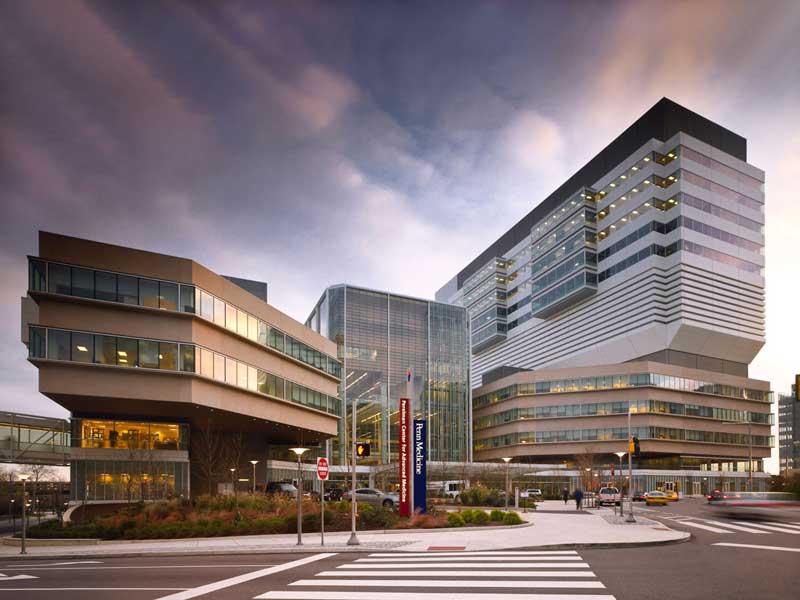
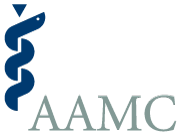
Student/ Resident Track
Date: Thursday, April 4, 2019
Time: Three Sessions
11:30 AM – 1:15 PM: Charting Your Journey: A Career Panel of Medical Educators
Registration and lunch at 11:30; workshop begins promptly at noon
1:30 – 3:00 PM: Deconstructing Feedback: Maximizing the Feedback You Give and Receive
3:15 – 4:45 PM: Ready, Set, Go: Getting Started in Medical Education Scholarship
About the Student/Resident Track
The Student/Resident Track is a special offering designed for medical students and residents with an interest in medical education. It provides a great opportunity to exchange ideas with peers, to connect with leaders in medical education, and to think critically about how we learn and teach medicine. Through participation in the Student/Resident Track, you will have access to all regular conference programming, networking opportunities, and a dedicated half day of workshops designed specifically for medical students and residents.
Participation will allow you to:
- Discover opportunities for careers in medical education
- Develop necessary skills to participate in medical education research
- Learn how to give and receive better feedback
- Network with peers and faculty involved in medical education
- Present your own original work in a supportive and constructive environment
Workshops (April 4)
11:30 AM –1:15 PM
Charting Your Journey: A Career Panel of Medical Educators
Panelists (click names for bios)
Noah Levinson, MD
Dimitri Papanagnou, MD
Marisa Rogers, MD, MPH, FACP
Suzanne Rose, MD, MSEd, AGAF, FACG, FACP
Capitalize on the wisdom of those who have journeyed before you! During this student- and resident-facilitated panel, we will explore the breadth of possibilities for a career in medical education and discuss how to get started on your own journey with specific strategies for exploring your interests in your current and next stage of training. The panel is composed of medical educators across specialties and career stages from fellow to program director to senior vice dean. Please come with questions and feel free to submit questions in advance online!
Objectives
At the conclusion of this session, participants will be able to
:
- Describe the diversity of available career paths in medical education
- List specific strategies to explore an interest in medical education during medical school, residency and fellowship
- Explain the rewards of a career in medical education and strategies for success
1:30 PM – 3:00 PM
Deconstructing Feedback: Maximizing the Feedback You Give and Receive
Facilitators (click names for bios)
Gina Luciano, MD, FACP
Dimitri Papanagnou, MD
Giving and receiving feedback are essential skills for an aspiring educator. Effective feedback can not only help to improve performance, but can also foster a culture of lifelong learning as well as a strong partnership between an educator and a learner. This session will focus on the relationship between growth mind-set, lifelong learning, and giving and receiving feedback.
Objectives
- Outline the components of effective feedback
- Discuss the importance of giving and receiving appropriate feedback
- Discuss the relationship between growth mind-set and lifelong learning
3:15 – 4:45 PM
Ready, Set, Go: Getting Started in Medical Education Scholarship
Facilitator (click name for bio)
Jennifer Kogan, MD
In this interactive workshop, participants will learn about the different types of medical education scholarship and how to get started on a medical education project. Participants will learn key steps that are important in project development if the goal is to later disseminate medical education research or an innovation. A framework for project development will be provided and participants will apply this framework to two examples: a medical education research project and a medical education curricular innovation project.
Objectives
By the end of this workshop participants will be able to:
- Explain the types of educational scholarship in medical education and how to identify a project
- Explain key steps involved in project development that will impact success in dissemination
- When appropriate, select an appropriate study design and outcomes of interest
Panelists and Facilitators
Jennifer Kogan, MD 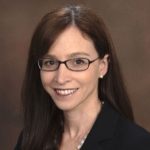
Dr. Jennifer Kogan is a professor of medicine at the Perelman School of Medicine, where she is the director of undergraduate education for the Department of Medicine and the assistant dean of faculty development at the Perelman School of Medicine. Dr. Kogan is the director of the Measey Medical Education Fellowship for Department of Medicine fellows and director of the Perelman School of Medicine Medical Education Certificate Program. She was the clerkship director for the Internal Medicine Clerkship for 13 years. Dr. Kogan is a general internist who precepts students and residents in her office.
Dr. Kogan’s research is focused on assessment in medical education, particularly feedback, competency assessment, and developing and assessing the effectiveness of new approaches for faculty development in workplace-based assessment (training faculty to observe and provide feedback about learners’ clinical skills). She has published in multiple medical education journals and has authored textbook chapters related to assessment in medical education and faculty development. She currently collaborates with the ACGME doing research focused on rater training faculty development and teaches in the ACGME’s assessment course for residency and fellowship program directors. Dr. Kogan previously served as president of Clerkship Directors in Internal Medicine (CDIM) and served on the board of directors of the Alliance of Academic Internal Medicine. Dr. Kogan was a recipient of the Lindback Award for Distinguished Teaching in 2017.
Dr. Kogan received her medical degree from the University of Pennsylvania in 1995. She completed her residency in internal medicine at the University of Pennsylvania in 1998 and a clinician educator fellowship in general internal medicine in 2000.
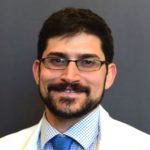 Noah Levinson, MD
Noah Levinson, MD
Dr. Noah Levinson is currently a neuromuscular fellow in the Department of Neurology at the Perelman School of Medicine of the University of Pennsylvania, where he previously obtained his MD and completed his residency training in neurology. As a senior neurology resident, he received a Penn Pearls Award, which is given by medical students of the Perelman School of Medicine to a member of the house staff in recognition for excellence in education. After fellowship, he will be taking on a new role as an assistant professor of neurology at Temple University and a neurology assistant clerkship director for the Lewis Katz School of Medicine.
 Gina Luciano, MD, FACP
Gina Luciano, MD, FACP
Dr. Gina Luciano received her medical degree from the University of Connecticut School of Medicine and did her postgraduate training and chief residency in internal medicine at Baystate Medical Center. Dr. Luciano is an associate professor of medicine of the Frank H. Netter MD School of Medicine at Quinnipiac University. She completed the Harvard Macy Program for Educators in Health Professions and the Society of General Internal Medicine LEAD program. She has been an associate program director for 10 years at Baystate Medical Center and has been involved in the development and accreditation of an internal medicine residency program at Mercy Medical Center. She was the winner of the Primary Care Innovation Challenge Award and Society of Teachers of Family Medicine Innovation Award.
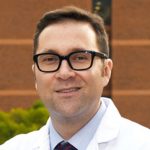 Dimitri Papanagnou, MD
Dimitri Papanagnou, MD
Dimitri Papanagnou is an associate professor of emergency medicine (EM) at Thomas Jefferson University in Philadelphia. He serves as associate dean for faculty development; vice chair for education in the Department of EM; and director of in situ simulation of Jefferson Hospitals. Dr. Papanagnou graduated from the New York University School of Medicine. As a Josiah Macy Jr. Foundation Scholar, he received a Master of Public Health from Columbia University, then completed his residency training in emergency medicine at the NYU/Bellevue Hospital Center. He is currently completing a doctorate in adult education at Teachers College, Columbia University. His work and research involve multidisciplinary team-based learning, simulation-integrated curriculum development, patient safety, and educational innovation. Dr. Papanagnou is the recipient of grant support from the Emergency Medicine Foundation, the New York Academy of Medicine, and the Josiah Macy Jr. Foundation. Most recently, he and his team were awarded a $1.2 million grant from the Agency for Healthcare Research and Quality (AHRQ; R-18), which applies simulation-based mastery learning to improve communication with patients in the emergency department during times of diagnostic uncertainty.
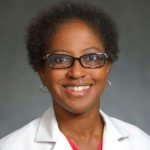 Marisa Rogers, MD, MPH, FACP
Marisa Rogers, MD, MPH, FACP
Dr. Marisa Rogers is an associate professor of clinical medicine in the Division of General Internal Medicine in the Department of Medicine at the Perelman School of Medicine at the University of Pennsylvania. She is as an associate program director for the Internal medicine residency program. Dr. Rogers completed her MD and MPH at Emory University School of Medicine and Rollins School of Public Health. She completed her internship and residency in internal medicine at Brigham and Women’s Hospital, where she subsequently served as a chief resident. Dr. Rogers is a board-certified internist and a fellow of the American College of Physicians. Her education and research interests include diversity and inclusion in GME, decreasing bias in residency selection and ambulatory care, and addressing social determinants of health in clinical settings.
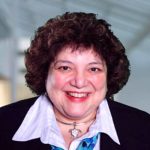 Suzanne Rose, MD, MSEd, AGAF, FACG, FACP
Suzanne Rose, MD, MSEd, AGAF, FACG, FACP
Dr. Suzanne Rose serves as senior vice dean for medical education at the Perelman School of Medicine. Prior to her arrival in February 2018, she was senior associate dean for education at the University of Connecticut, where she led development of an innovative medical school curriculum (MDelta), securing one of the AMA grants to accelerate change in medical education. She served for 13 years at Icahn School of Medicine at Mount Sinai in various leadership capacities, including associate dean for academic and student affairs, associate dean for CME and vice chair for faculty affairs. She previously held positions at Weill Cornell Medical College (1996‐1997) as the director of motility and the second‐year pathophysiology course. She was also a faculty member at the University of Pittsburgh (1990-1996), where she ran the second‐year GI course. She served in leadership roles in the gastroenterology fellowship programs at both Pittsburgh and Cornell.
Dr. Rose completed a two‐year term as co‐chair of the Northeast Group on Educational Affairs (NEGEA) of the Association of American Medical Colleges (AAMC) and served as the chair of the AAMC group on educational affairs (GEA). She received the inaugural NEGEA Distinguished Service and Leadership Award in 2015. Dr. Rose was selected as faculty for the AAMC’s LEAD program.
Dr. Rose’s clinical interests are in pelvic floor dysfunction and GI disorders in women. She has served many leadership roles in GI organizations including serving on the AGA governing board as education counselor. She convened all six GI societies to create end-of-training entrustable professional activities for GI fellowship training, which were published in multiple journals. She co-created the first subspecialty academy for educators in the United States. She served as one of the directors of the AGA Future Leaders Program and was appointed the course director for the postgraduate course in 2017. She also has served on both the ACG Women’s Committee and Education Committee. She was awarded the AGA Distinguished Educator Award in 2016.
Dr. Rose received her bachelor’s degree from the University of Pennsylvania in Russian language and literature, followed by a master’s degree in education from Penn. She graduated from Case Western University School of Medicine as a member of the Alpha Omega Alpha Honor Society and completed her internship and residency there. Her GI fellowship, including the chief fellow year, was done at the Cleveland Clinic.
Be sure to experience the rest of the conference too!
Additional Networking Opportunities
The breakfast and lunch networking sessions on Friday, April 5 and the networking breakfast on Saturday, April 6 are also are open to students and residents (see the conference schedule for times). These informal gatherings give students and residents a chance to meet and mingle with faculty and colleagues and receive guidance in navigating the conference.
NOTE: Student/Resident Track attendance is included in your NEGEA 2019 Annual Conference registration. Students and residents receive a discount. See registration for details.
For questions on the Student/Resident Track, please contact Gina Luciano, MD, at Gina.Luciano@baystatehealth.org.
SHARE THIS PAGE
